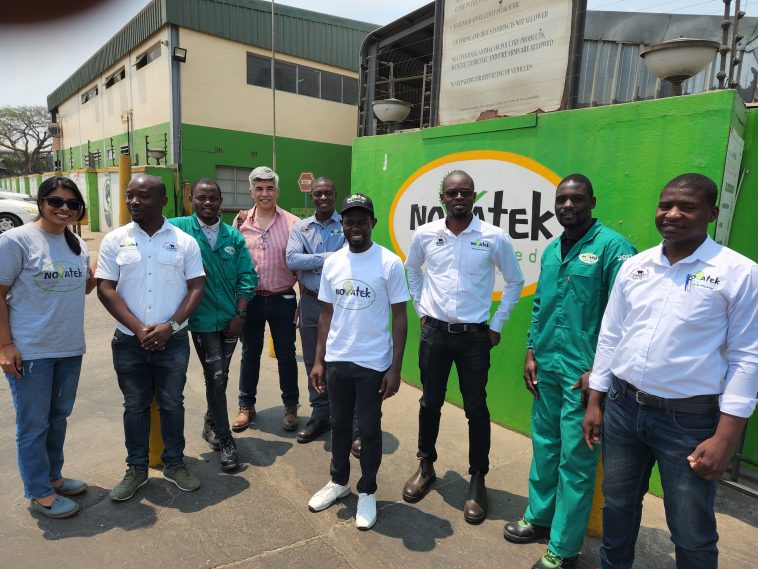In Zambia, poultry farming serves as a major source of income and nutrition for more than 1 million farmers and households who keep chickens.
Novatek is committed to maintain both quality and quantity in the Zambian community. In this article we look atsome important factors to keep in mind on your poultry farm.
Farms
Heat stress can result in poor returns for farmers. It is important to remember that whilst we enter into the warmest time of the year, that we keep our birds comfortable by ensuring adequate ventilation. By removing heat, you allow your birds to be comfortable and productive.
Thermoneutral zones promote overall health and performance of animals. Thermoneutral zones are the temperature ranges within which the animal does not display symptoms of heat stress. It is in this zone that the animal can maintain a constant body temperature and where the animal displays normal behaviour.
Ambient temperature
Thermoneutral zone for laying hens is between 19 and 22 °C. Thermoneutral zone for broilers is between 18 and 22 °C.

Feed, water and environment
Biosecurity is a farm’s first line of defence and should always be in place on a farm; from the access of vehicles to foot dips and personal protective equipment. Access to the right quality of feed and cool, fresh water is key for a production cycle that benefits both the farmer and the birds. An increase in the humidity of a poultry house can decrease heat loss from the lungs of a bird, exposing the bird to heat stress. It is important to monitor the humidity levels in a poultry operation.
Air flow allows for managing the heat through a poultry house and allows for removal of heat from the house. Most often, birds will consume the Novatek remains committed to the Zambian community most feed in the mornings. This puts the animal at risk of heat stress in the afternoon. It is important to monitor bird behaviour. Active and happy birds are comfortable birds. Birds usually increase their water intake 2 to 4 times during heat stress conditions. Sufficient cool, fresh water and drinkers should be provided to encourage water intake. Lines should be flushed out regularly to ensure that the water is cool enough for consumption.
Addition of electrolytes into water prior to heat stress conditions also ensures that the mineral loss experienced during heat stress, is reduced. Supplemental vitamins added into feed, for example Vitamins A, D, E and B are effective to reduce heat stress mortalities in broilers. Vitamin C is another key in layer production as it moderates warm temperature declines relating to egg production and eggshell quality.
Change is always good
Novatek is glad to announce the promotion of Nelia Mbewe from the position of Feed Formulator to the role of Junior Nutritionist. Novatek has added two new members to their Technical Team, namely Everett Pieterse (Nutritionist) and Riyashna Rampersadh (Technical Manager). The team will ensure that the quality of feed produced meets all regulatory and industry standards. Together, they each hold a wealth of knowledge and are willing to support you as a farmer.
People development
Dr Oscar Blanco (Phibro) visited the team to present training on coccidiosis. Theoretical and practical training form part of the backbone in developing teams, and Novatek aims to equip their team members in providing the best customer service experience.









It’s a commitment company in our country and I’m looking for a job please your response will be highly appreciated 👍👍